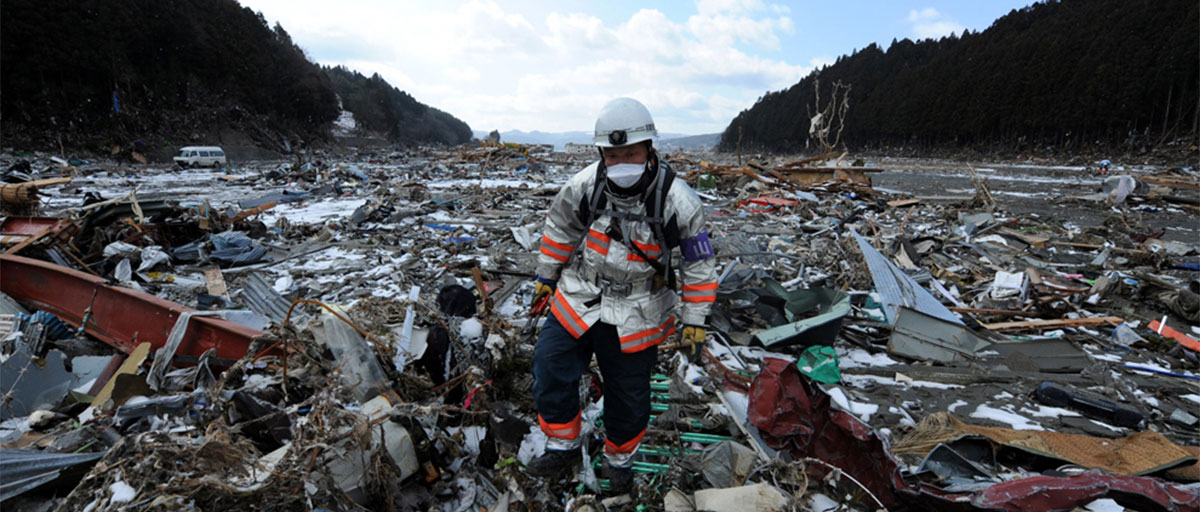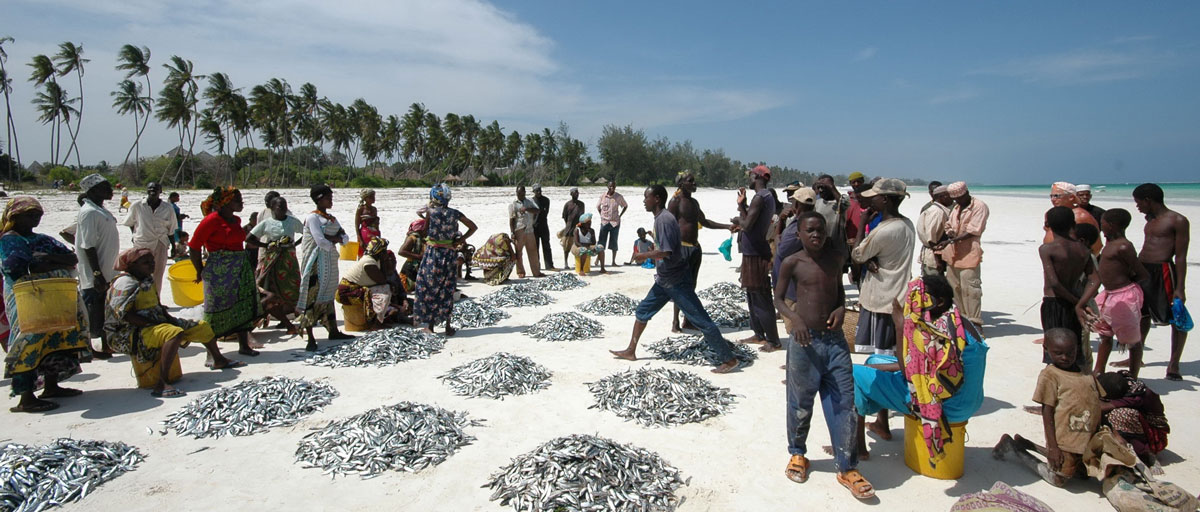
Is it possible to build a general resilience against unfamiliar, unexpected shocks and events such as a tsunami? A new study presents nine important aspects for developing such resilience. Photo: D. Sprott/Flickr
Buckled up
Nine conditions for a more all-purpose kind of resilience
Every year leading economists and ecologists, including centre researchers, head out to the island of Askö in the Swedish archipelago to discuss a range of issues related to sustainable development. Organised by centre partner Beijer Institute of Ecological Economics, they often lead to well-cited scientific publications.
The meeting in 2010 was no exception and resulted in a paper recently published in the journal Sustainability dealing with the increasing need for a "general resilience".
"General resilience is the capacity of social-ecological systems to adapt or transform in response to unfamiliar, unexpected and extreme shocks. Processes for building general resilience are an emerging and crucially important area of research," write the team of scientists, including centre researchers Oonsie Biggs, Anne-Sophie Crepin, Gustav Engström, Carl Folke, Karl-Göran Mäler, Brian Walker and Aart de Zeeuw.
Absorb shocks of all kind
Hence, general resilience is about strengthening the capacity to absorb shocks like storms and floods, even financial meltdowns. It goes without saying that building such broad resilience to unknown disturbances is far more difficult than planning for specific resilience to known types of disturbances.
In fact, large-scale disturbances like the mad cow disease and the huge Japan earthquake and tsunami of 2011, are outside the scope of experience. The latter example was an earthquake which was extraordinarily powerful and triggered a tsunami with a 14 meter wave that breached the seawalls designed for the expected maximum wave height of 5.7 meter. In addition, the tsunami damaged nuclear power stations by shutting down back up diesel generators which were located in “safe" places on the assumption that the sea walls would hold.
"Such events are unusually so intense or extensive that they require another type of resilience building," argue the authors.
"We should build more 'all-purpose kind' of resilience, although building such a resilience is far more difficult and costly than planning for known types of disturbance."
Among the conditions that enable general resilience, the authors of the new paper include nine important aspects: (1) diversity, (2) modularity, (3) openness, (4) reserves, (5) feedbacks, (6) nestedness, (7) monitoring, (8) leadership, and (9) trust.
Diversity, openness and trust
Diversity, for example, provides components that have similar functions but different responses to disturbance (response diversity), so the function is maintained even if one component of an ecosystem is damaged. Diversity of perspectives and experience also matters as much as individual ability when teams of people are solving complex problems.
Modularity is important because it helps to contain disturbances by separating social-ecological systems from each other, e.g. land management with prescribed fire that uses firebreaks to limit the spread of the fire. Similarly, quarantine mechanisms may restrict the spread of epidemics or invasive species.
In other cases, openness of a social-ecological system might be the key to general resilience, e.g. seed dispersal as a key to recovery from large infrequent forest fires. Hence, there are a number of trade-offs between modularity and openness that is well understood for some social-ecological systems, but not for others.
"Development of trust is another important aspect when building general resilience determining whether people will be able to collaborate effectively in relation to unfamiliar, unexpected and extreme shocks," the authors conclude.
Similarly, co-author Oonsie Biggs and others recently suggested seven principles for enhancing resilience of ecosystem services. These principles included diversity, connectivity, feedbacks and slow variables, polycentric governance, learning and experimentation, breadth of participation, and the complex adaptive characteristics of social-ecological systems.
Carpenter, S.R.; Arrow, K.J.; Barrett, S.; Biggs, R.; Brock, W.A.; Crépin, A.-S.; Engström, G.; Folke, C.; Hughes, T.P.; Kautsky, N.; Li, C.-Z.; McCarney, G.; Meng, K.; Mäler, K.-G.; Polasky, S.; Scheffer, M.; Shogren, J.; Sterner, T.; Vincent, J.R.; Walker, B.; Xepapadeas, A.; Zeeuw, A.D. General Resilience to Cope with Extreme Events. Sustainability 2012, 4, 3248-3259









